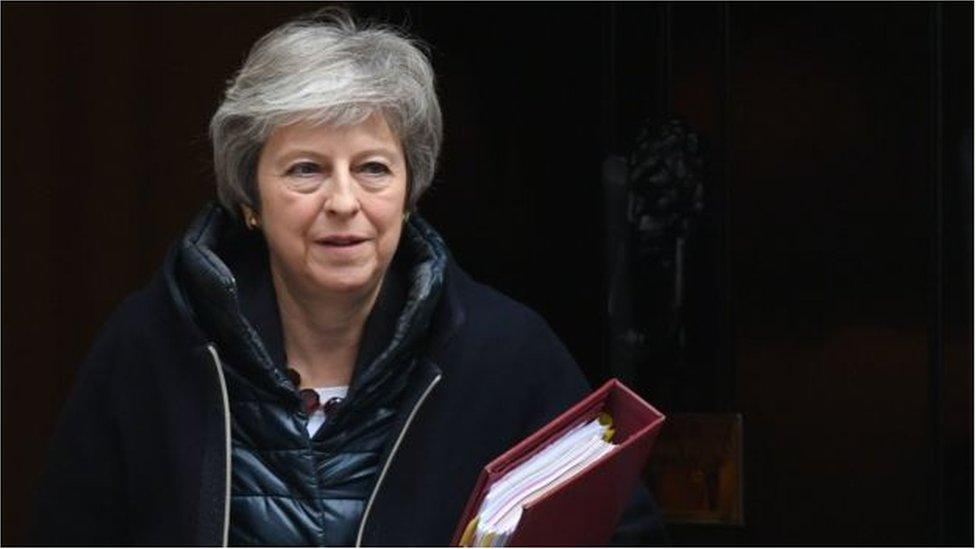Brexit: Boris Johnson says UK must 'junk the backstop'
- Published
Boris Johnson told the DUP conference that agreeing to the Brexit deal would be an historic mistake
The UK is on the verge of making a historic mistake if it does not "junk the backstop", Boris Johnson has said.
He told the DUP conference the EU had made NI an "indispensable bargaining chip" in the Brexit negotiations.
DUP leader Arlene Foster said a Brexit deal that includes the backstop plan is "not in the national interest".
There has been political opposition among unionists to the government's plan because of the backstop, which aims to avoid a hard Irish border.
It would see only Northern Ireland stay aligned to some EU rules if it took effect.
The DUP is concerned that the backstop could threaten the integrity of the union and place a trade border down the Irish Sea.
Mr Johnson is one of two senior Conservative MPs to appear at the conference this weekend, after Chancellor Philip Hammond spoke on Friday night.
"We must agree that neither side will introduce a hard border in Northern Ireland," he said.
'Bright side'
The former foreign secretary said the UK had an "absolute duty to get this right" and that there is still time to work for a better deal.
"In the words of that great Northern Irish singer Van Morrison, it is time we all moved from the dark end of the street to the bright side of the road," he added, to applause.
He said he hoped the DUP and Conservatives could continue working together, "backing our union against all those who would seek to divide us".

Unusual conference for unusual times
by Jayne McCormack, BBC News NI political reporter
What do Star Wars, sardines and the Titanic all have in common?
Answer: They all somehow ended up getting a mention in Boris Johnson's speech at the DUP conference (yes, really).
It certainly wasn't a normal party conference, but these are unusual times. There was standing room only as the politician, who often brings a rock star flavour to events, took to the stage.
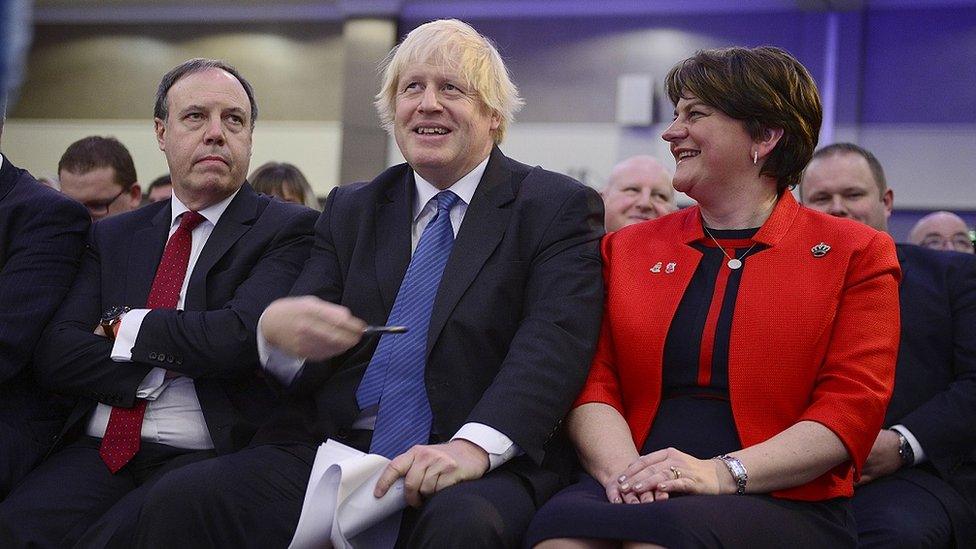
That being said, while much of what he said received roars of applause, my colleague Gareth Gordon noticed one woman asleep in the front row.
But even getting Mr Johnson to appear at the conference will be seen as a victory for the DUP, in its attempt to resist the government's path for Brexit. Before party leader Arlene Foster was announced to the stage, one DUP councillor described her as "a lady who's not for turning".
But with Theresa May also holding firm against the DUP's opposition to the backstop so far, soon enough someone's going to have to give.

Mr Johnson also suggested the creation of a secretary of state for "no deal" on World Trade Organisation terms, "with real powers across Whitehall to make things happen".
"I do not believe that we will exit without a deal - that is totally unnecessary - but it is only responsible of government to make the proper preparations," he added.
Mrs Foster told her party's conference that the prime minister had not been able to guarantee that the backstop would not have to be used.
The government has said it is looking at alternative arrangements to ensure the backstop is a last resort.
Brexit: Arlene Foster says choice 'not between this deal and no deal'
But, Mrs Foster said there were "many contradictions" in the draft withdrawal agreement.
She said she understood the position of many in the business community, who have urged DUP MPs to back the deal.
But she added that the party could not wish away proposals that it believes are not in the best interests of Northern Ireland's economy or interests.
"The choice is not between this deal and no deal, despite what the government spin machine may say," she said.
Ahead of the party conference, Mrs Foster warned that if the deal gets passed in parliament, her party may have to revisit its confidence-and-supply pact with the Conservatives.
'Bin the backstop'
The DUP holds the balance of power at Westminster, as the government relies on the votes of its 10 MPs to have a working majority in parliament.
It signed a confidence and supply pact with the Conservatives in June 2017 and negotiated an extra £1bn in spending for Northern Ireland - but the rift between the parties over the Brexit plan has put the arrangement under significant pressure.
On Saturday, she said "the DUP had never been afraid to say yes when it is right to do so, nor to say no when required".
Earlier, the DUP's deputy leader Nigel Dodds said the party would "stand firm in the face of inevitable onslaught" in opposing the government's Brexit plan.
Mr Dodds told the party's conference: "Prime minister - bin the backstop."
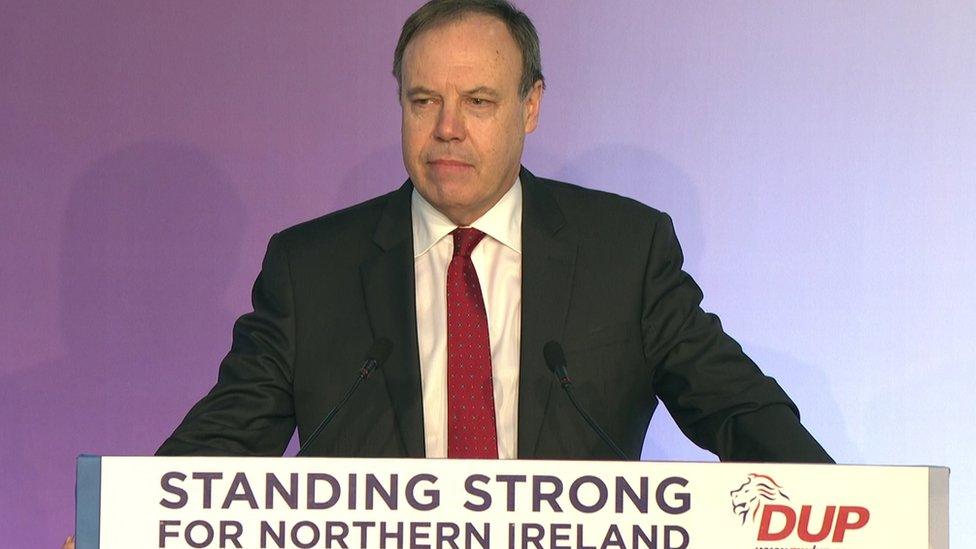
Nigel Dodds was addressing the Democratic Unionist Party conference
Mr Dodds told the conference that the union is "non-negotiable".
He described Theresa May's draft plan as portraying a "pitiful and pathetic place for the United Kingdom".
The government has insisted that it will not renegotiate the current plan, and has urged MPs to back it or risk a no deal scenario.
Mr Dodds added that the DUP wanted to leave the EU with a deal, but "not a deal at any price".
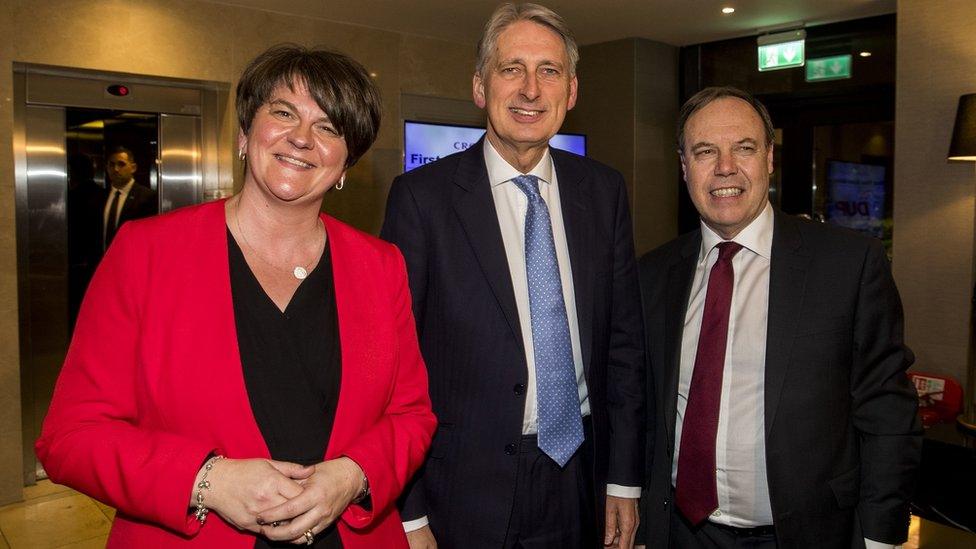
Philip Hammond had a series of engagements in Northern Ireland on Friday before attending the DUP conference
He was speaking during a visit to an integrated school in Moira, County Down.
The government of Gibraltar is also represented at the DUP conference.
Gibraltar has become involved in the Brexit debate as Spain sought written assurances from the UK that it would be directly consulted over its future trade negotiations with the EU which relate to Gibraltar, a British Overseas Territory.
Brexit agreement: What does the 585-page document say?
Donald Tusk recommended that the EU approve the Brexit deal after Spanish PM Pedro Sanchez received assurances from the UK government over Gibraltar, and dropped his threat to boycott the summit.
On Saturday, the government of Gibraltar said the territory "will not fold" over Brexit and staunchly supports the union.
Housing and equality minister Samantha Sacramento told the DUP conference Gibraltar would "not be bullied".
The chief minister of Gibraltar, Fabian Picardo, was due to attend but could not make it because of the ongoing Brexit negotiations.
Gibraltar voted overwhelmingly (96%) to remain in the EU.
- Published24 November 2018
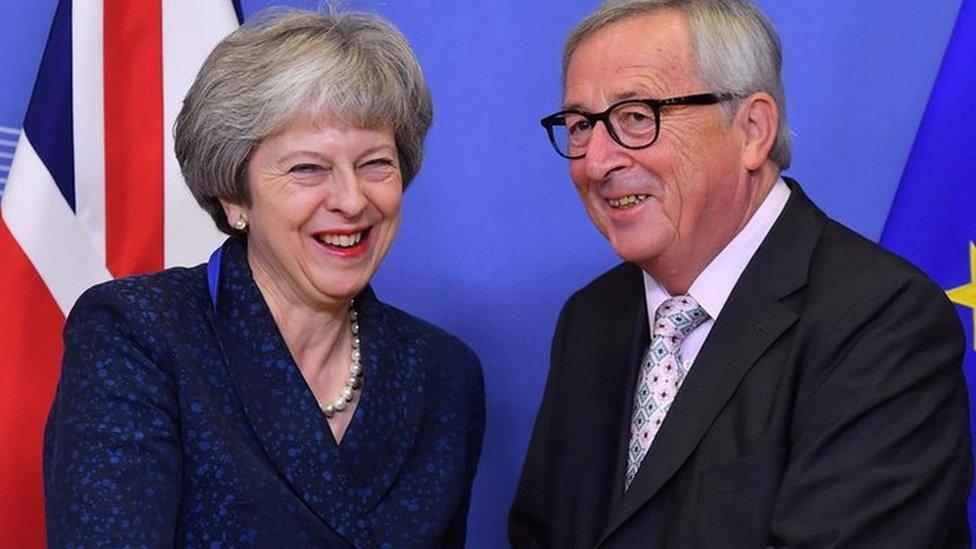
- Published24 November 2018
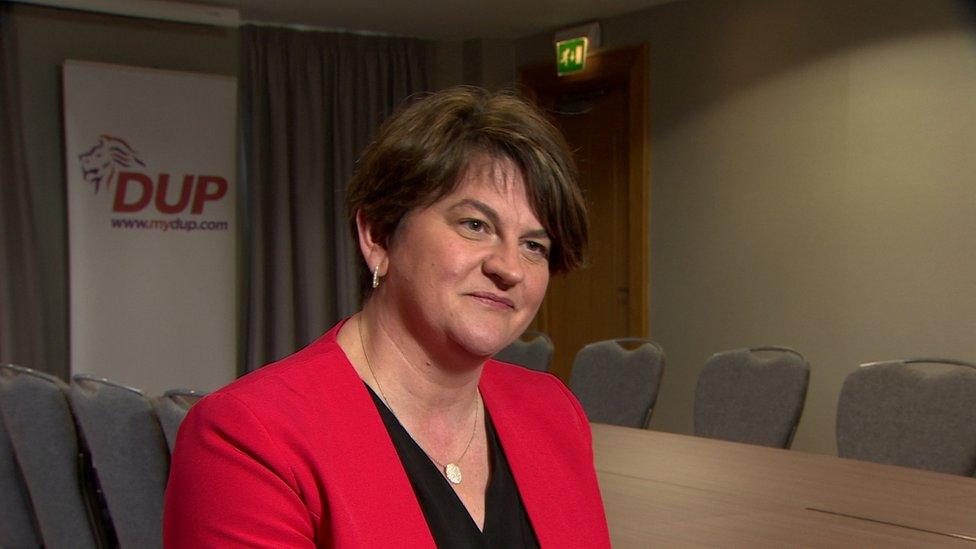
- Published20 November 2018
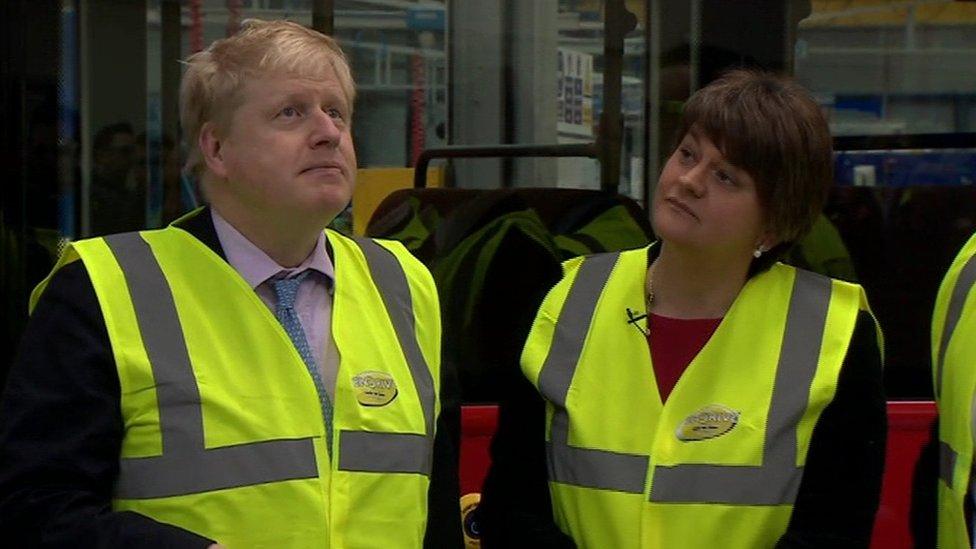
- Published16 October 2019

- Published22 November 2018
